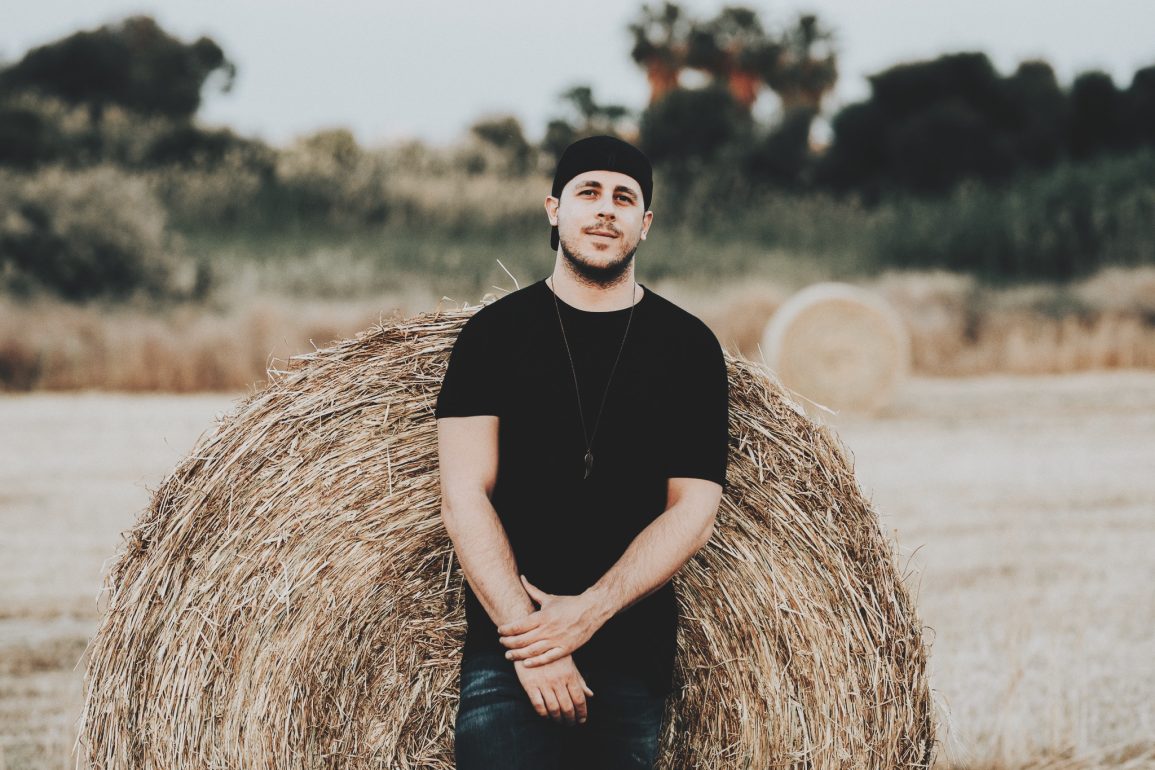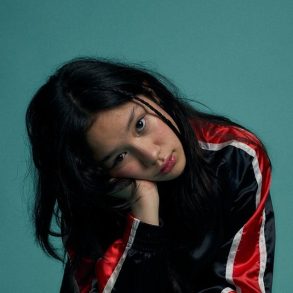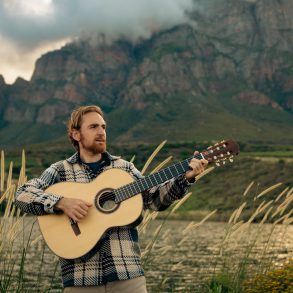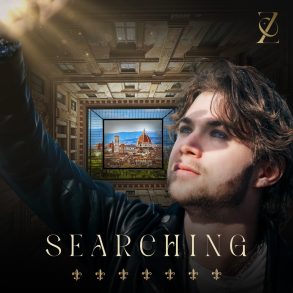With a rapidly growing global following and over 2 million streams to their name, Pinwheel Valley have emerged as a formidable force in the indie-alternative space, seamlessly weaving together Indie Soul, Alt-Rock, and Folktronica into a sound that is at once cinematic and raw. Spearheaded by Jordanian-Canadian frontman Qais Khoury, the band’s emotionally resonant storytelling and genre-defying productions have earned them accolades from CLASH Magazine, NOTION, and Earmilk, along with airplay on BBC Radio London and BBC Radio Sheffield. Their single ‘Your Superman’ debuted at No. 13 on the US iTunes Alternative Chart, and award-winning visuals for ‘Willow’ and ‘Abduction’ have taken home top honors at the New York Film Awards, Vegas Movie Awards, and Swedish International Film Festival. After signing with Levantine Music in 2024 for the release of their EP Reverie, the band continues to captivate audiences worldwide with performances at Fengaros Festival, Indie Week Toronto, and the Mayor of London’s Big Busk.
Now, following the release of their stirring new single ‘Werewolf’, we caught up with Qais for a deep dive into the creative heart of Pinwheel Valley.
You’ve performed everywhere from Fengaros Festival to Indie Week Toronto—what’s been your most memorable moment on stage so far?
My most memorable moment on stage was performing a solo set at the Vancouver Harbour Events Centre for the RAW Artists showcase. The space was filled with all kinds of creatives: musicians, painters, designers, photographers, and I just remember this really magnetic energy in the room. Everyone seemed locked in during my set, and I think it was that unspoken artist-to-artist connection. But that kind of crowd can be the most critical, so feeling them actually vibe with me was powerful.
By the end, the 300-person crowd started chanting for an encore, even though the event organizer was trying to wrap it up, she was on strict timing. But I went for it anyway and performed ‘Ain’t Goin’ Nowhere,’ which is one of my most challenging songs vocally but also one of my favorites. The crowd went wild, and I didn’t expect that at all. I later found out, after performing it again and again, that the song had become a fan favorite.
I also remember clocking my girlfriend at the time standing with her arms crossed, clearly not happy about all the attention I was getting. That moment stuck with me. It taught me two things: if you read the room and trust your instincts, you can really move people. And second, the stage can give you a pretty honest view of who’s really in your corner.
Your music draws from such a wide emotional and sonic palette—how do you know when a song is truly finished?
When a song’s really done, it feels like snapping in that last puzzle piece. Everything just clicks, and you feel it in your gut. Sometimes that happens after three mix revisions, other times it takes 11 or 12. If it’s not there yet, I can always tell. Little things will bug me until I fix them, whether that’s something in the raw takes, the arrangement, the editing, or just the mix itself.
I usually jot down notes on my phone every time I listen to a new version. Then I’ll play it back again with those notes in mind. Once I feel like I’ve locked it in, I’ll test it on different setups, studio monitors, headphones, car speakers, even just my phone. If it still hits in all those places, that’s when I know I’ve got it.
You’ve collaborated with amazing creatives like Andreas Matheou and Robb Robinson—what’s one lesson you’ve taken from working with them on ‘Werewolf’?
‘Werewolf’ was mostly written and composed by me. I handled the pianos, guitars, lyrics and vocals. Andreas Matheou played upright bass on the track. I always bring him in for bass parts because his ear for low-end is just next level. I’ve never once been disappointed with what he delivers. And actually, this song was a bit of a milestone. After we wrapped it up, he told me it was a really great song and that I was pretty good at songwriting. If you know Andreas, you know he doesn’t hand out compliments easily, so that meant a lot.
Robb Robinson has been my go-to mastering engineer lately. I love working with him not just because he’s got a serious resume, but because he always gives solid mix feedback when it’s needed. He won’t master a track unless the mix is right. With ‘Werewolf,’ though, he didn’t have any notes. Just said, ‘very cool tunes as usual,’ which honestly feels great coming from someone at his level. It’s nice knowing someone like him is genuinely into your music.
I also want to shout out Aaron Sterling, who played drums on the track. Working with him was such an eye-opener. He totally got the rhythmic vibe I was going for on the first take. It reminded me how powerful it is to work with top-tier musicians. It might cost a bit more, but the quality and ease of collaboration is on another level. Plus, Aaron told me the song was dope, so it’s cool to know he was into it too.
The vulnerability in ‘Werewolf’ really cuts deep—what headspace were you in when writing that track, and did anything surprise you in the process?
I don’t totally remember what headspace I was in when I started writing ‘Werewolf,’ but I knew I wanted to approach it from a fantasy angle. Songwriting doesn’t always have to be literal. I actually love using metaphors to get to something deeper. ‘Werewolf,’ for me, represents the vulnerability of a man torn between the good and the dark parts of himself. He might as well be me, especially in the way I relate to the music industry now. I’ve been in this game for over 20 years, and I’ve never really had that one person or moment that gave me a true helping hand. I’m still out here doing it independently, still financially struggling.
The song is also a callout. It’s about how the system can crush artists, not just financially, but emotionally and mentally. The damage goes way beyond money. The ‘Werewolf’ is a metaphor for what that pressure and isolation can turn you into. It’s a voice for artists dealing with mental health struggles, especially when they’ve been pushed to the edge by an industry that doesn’t always protect or value them.
Thematically, ‘Werewolf’ feels like it’s confronting something internal and chaotic—what do you hope listeners take away from it on a personal level?
With ‘Werewolf,’ I didn’t just want it to speak to struggling artists. I wanted it to connect with anyone who’s ever felt like an outsider. The misfits, the racialized, the immigrants, the people the system keeps pushing to the margins. I’m talking about folks who’ve felt their anger bubbling up, like they’re being forced into survival mode.
I want those people to feel seen. I want them to know it’s okay to feel like a ‘werewolf’ sometimes. Like you’re fighting something bigger than you, and it’s changing you. That feeling of being out of control, of wanting to bite back. It’s real. And it’s a response to a system that often doesn’t care. The song’s a way of giving that feeling a voice.
You’ve lived and created across places like Amman, London, and now Cyprus—how has that global experience shaped the way you approach songwriting?
Every place has its own soundscape. A kind of energy or frequency you can tap into if you’re really tuned in. And while I’ve always been aware of that, I’ve never felt the need to conform to it. Just because I lived in Amman doesn’t mean I was making music that sounded like Amr Diab or Fairuz. Same with London – I love artists like Coldplay and London Grammar, but I wasn’t trying to sound like them. Even in Cyprus, I didn’t suddenly feel the urge to add a Bouzouki to my tracks.
My music has always come from a more internal place. I like to call it the innerverse. It’s more spiritual than geographical. Sure, nature inspires me. It inspires anyone who’s truly paying attention, but what I’ve realized over time is that I could roll down the window of my car in Amman, London, Cyprus, or Vancouver, and I’d still end up writing the same kind of songs. They all come from the same inner voice. I’ve had a clear sonic identity from the start, and I’ve stuck with it.
A lot of your music navigates the tension between introspection and external pressures—how do you personally stay grounded while making such emotionally demanding work?
That definitely ties back to the last answer. Staying tuned into the innerverse. That’s always been my safe space. The outer world feels pretty chaotic these days, and I find it spiritually jarring, sometimes even damaging. The innerverse, for me, acts like a shield. It helps filter all that outside noise and becomes the place where I find real truth.
External pressures will always come and go. I deal with them as they show up, in the realm they exist in. But if I ever lose the ability to look inward, I lose the ability to write. That inner space is where all the music comes from.
There’s a cinematic quality to your sound—if you could score one director’s film with a Pinwheel Valley soundtrack, who would it be and why?
That’s a good question. So far, I’ve only had one track synced to an upcoming horror video game — and even then, it was just the stems — so it’s tough to say exactly what kind of film my sound would naturally land in. But if I’m being real, I feel like the Pinwheel Valley sound might actually suit a high-profile commercial more than a film. That said, I could definitely hear some of my songs in certain TV shows — maybe a reboot of Grey’s Anatomy, The OC, or even Breaking Bad. Something with a mix of romance, drama, and a bit of emotional weight. Those kinds of shows seem like the right emotional landscape for my music.
If I ever got the chance to score something from scratch, though? I’d love to take a swing at a film by The Wachowskis, something layered, futuristic, and spiritual like The Matrix. And if I could pull that off, then yeah, maybe I’d try for a Denis Villeneuve film next.
With the evolution from KAIS to Pinwheel Valley, what parts of your artistic identity have stayed constant, and what’s radically changed?
Changing my artist name from KAIS, which was a variation of my real name, to something more like a band name has really shifted how I approach the whole project. It lets me see the artistic identity less as just a solo act and more as something that functions like a band. And honestly, that feels more right for me.
I still compose most of Pinwheel Valley’s songs myself, though I’ve collaborated with my guitarist Stefanos Marangos on a few. But I always rely on the band, or other session players, to take the songs to the next level. My drummers often bring fresh rhythmic ideas, and so do my bassists, Max and Andreas Matheou. Their input really adds depth to the sound.
So right now, I’d say Pinwheel Valley sits somewhere between a solo project and a full-on band. The sound is immersive and layered, and it just naturally calls for multiple players to bring it to life. That identity is becoming clearer the more we perform and build our name. Long term, I’d love for Pinwheel Valley to become a household name. Something on the level of Oasis, Coldplay, or Radiohead. For now, it’s funded and managed like a solo project, but creatively, it’s evolving into something collaborative.
Okay, imagine ‘Werewolf’ is turned into a short animated film—what’s the opening scene look like, and what animal is narrating it?
Right now, I’m working on turning ‘Werewolf’ into an AI-animated official music video. And yeah, seeing as I’m singing the song, I’ll be narrating it 😉 So that should be fun.
This video has really brought the song to life in a whole new way. It adds a layer of depth and visual storytelling that I’m super proud of. Honestly, I can’t wait to release it. It feels like a bit of a masterpiece to me.
The opening scene starts out with a wide shot of the woods at night, full moon bright in the sky, casting a gentle glow over everything. We see a medium shot of the man and his lover sitting close together at the edge of the forest, lit by soft moonlight. Affectionate smiles exchanged. They’re expression conveys deep connection and affection. The camera shifts slightly upwards, framing the full moon brightly above them. Slightly visual cue of the moon’s brightness intensifying as the man clutches his chest in pain. His fingers twitch uncontrollably. His skin begins to ripple as bones subtly shift.
And on it goes…
Stream ‘Werewolf‘:
Follow Pinwheel Valley:
Website – Instagram – Facebook – Soundcloud – TikTok – Youtube – Spotify









